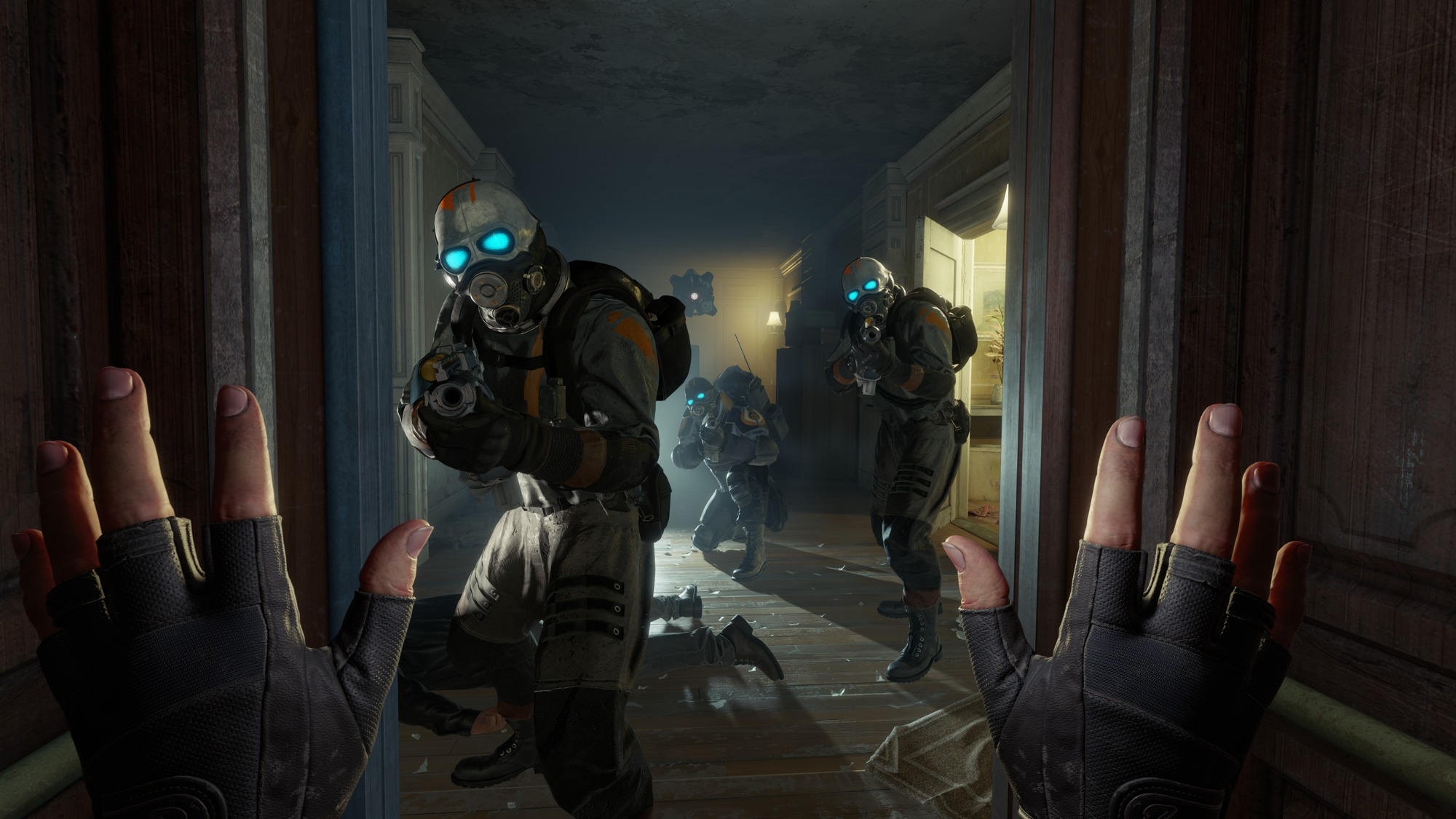2020 is VR’s make-or-break year

In the nearly four years since the Oculus Rift and HTC Vive hit retail shelves, VR has gone from being the most exciting new computing medium around — something that could be as transformational as the internet itself — to a niche accessory for gamers with too much money. New headsets have come and gone, cheap mobile VR was briefly popular (before going extinct) and standalone virtual reality devices have finally arrived. It’d be wrong to say there’s been no progress in the world of VR, but it still feels as if we’re waiting for it to truly take off as a medium.
Where’s the killer app? Where’s the affordable hardware that everyone can buy (that doesn’t deliver a dumbed down experience)? How, exactly, will developers make money without releasing yet another zombie game? There’s still so much left up in the air for a medium that arrived amid a torrent of hype.
Looking ahead to 2020, though, there are signs that things could shape up. Valve’s upcoming Half-Life: Alyx is exactly the sort of VR exclusive that could push gamers to pick up a headset. There’s already an uproar among Half-Life fans about the game being available only in VR, with no way to play it on a traditional monitor. Clearly, Valve is leaving money on the table by doing that, but it’s also a sign that it’s dedicated to the new medium. And if it’s a success, Half-Life: Alyx will also prove to other developers that it’s worth taking a risk on VR.
When the Oculus Quest originally launched, I knocked it for feeling a bit limited for a $400 device. But it’s now shaping up to be the most versatile headset around. And you can bet that price will fall over time. Still, it’d be nice to see Oculus take another stab at a dedicated high-end VR headset. The Rift S doesn’t cut it — I’m talking about something that pushes boundaries with features like eye tracking and improved haptics. The Quest’s 72Hz refresh rate is also lower than PC headsets, so there’s clearly a need for a smoother and more powerful alternative from demanding gamers.
Next year will also see the arrival of the next generation of game consoles, the PlayStation 5 and Xbox Series X, which is another major opportunity for virtual reality. They both feature significantly faster hardware than the PlayStation 4 and Xbox One — so much so that they’re on-par with powerful gaming PCs today — with support for new capabilities like ray tracing.
Maybe I’m being too hopeful about console-based VR. Still, the PlayStation VR was better than I expected, even though it was running on aging PS4 hardware. Sony has already confirmed that its headset will work with the PS5, and after selling over 3.2 million PS VR units, there’s a good chance we’ll see a sequel eventually. (Sony doesn’t seem to be in any rush to deliver one, though.)
Microsoft, meanwhile, has gone on the record saying VR isn’t a focus for the Xbox Series X. Speaking to Stevivor, Microsoft’s Xbox head, Phil Spencer, noted that virtual reality isn’t the sort of experience its users expect. “We’re responding to what our customers are asking for and… nobody’s asking for VR,” he said. While it sounds like we won’t be seeing an Xbox VR headset soon, at the very least, we know that the Series X has more than enough power to support VR when Microsoft is ready to embrace it.
There’s still a chance consumers could simply get tired of waiting for developers and manufacturers to get VR right.
While there are no signs that virtual reality market is slowing down — Fortune Business Insights predicts it’ll grow steadily to $120.5 billion by 2026, up from $7.5 billion in 2018 — much of that revenue comes from commercial uses of VR. (Indeed, HoloLens is proving to be very successful for enterprise customers, and that’s also Magic Leap’s next target.)
There’s still a chance consumers could simply get tired of waiting for developers and manufacturers to get VR right. Let’s not forget that virtual reality, as a concept, has been in the works since the 1970s. The ’90s saw a wave of companies like Virtuality giving consumers a glimpse at the technology. (Something had to inspire Lawnmower Man, after all.) Sega even developed a VR headset of its own, though it gave up on plans for home sales, instead leaving it to languish in arcades. After decades of false starts, it makes sense that VR might be a hard sell for typical consumers today.
Here’s the hard truth: Ultimately, VR headsets are just a stepping stone until AR glasses offer the ideal mixed reality experience. But that future is years away, given the rough start companies like Magic Leap and Meta have had. If you want to dive into truly immersive experiences anytime soon, your only choice is to strap on a bulky headset, blind yourself to the world and hope you don’t bump into anything. That’s a hard sell, but at least it looks like it’ll be an easier one in 2020.
It’s hard not to feel as if the virtual-reality market is losing steam. When the Rift and Vive arrived in 2016, they ended up being overshadowed by AR, namely Microsoft’s HoloLens and Pokémon Go. Fast-forward to 2017, and Oculus was already talking about a world beyond VR headsets, where AR goggles could also block out the real world to deliver similarly focused immersive experiences.
Today, VR headsets are, for the most part, still very expensive and require additional expensive hardware, like a gaming PC or a PlayStation 4. The Oculus Quest, though, is a glimmer of hope. As a standalone VR headset, it doesn’t need any extra hardware. And since all of its sensors are built in, you don’t have to worry about setting up additional equipment in a dedicated VR room. You can just pick it up and move it to any open space to dive into Superhot.
While the Quest was clearly the most exciting VR device of 2019 (the $1,000 Valve Index is also cool but only meant for hardcore enthusiasts), it’s already looking like a killer product for 2020. Oculus Link, which is currently available as a beta feature, will let you use the Quest as a standard PC VR headset. That means if you’ve got a gaming PC around, all you have to do is plug it in to play high-end VR. Oculus is also testing out hand tracking, which adds an entirely new level of immersion to the Quest. Up until now, that was a feature that required an additional accessory strapped to a VR headset.
(63)



